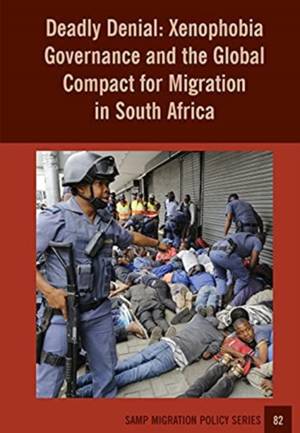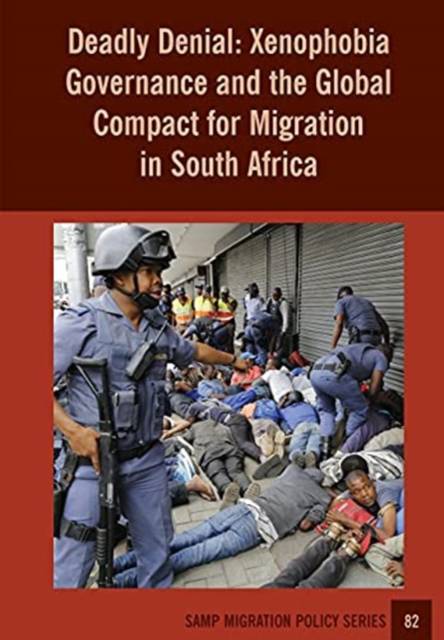
- Retrait gratuit dans votre magasin Club
- 7.000.000 titres dans notre catalogue
- Payer en toute sécurité
- Toujours un magasin près de chez vous
- Retrait gratuit dans votre magasin Club
- 7.000.0000 titres dans notre catalogue
- Payer en toute sécurité
- Toujours un magasin près de chez vous
Deadly Denial
Xenophobia Governance and the Global Compact for Migration in South Africa
Jonathan CrushDescription
The UN Global Compact for Safe, Orderly and Regular Migration commits signatories "to eliminate all forms of discrimination, condemn and counter expressions, acts and manifestations of racism, racial discrimination, violence, xenophobia and related intolerance against all migrants in conformity with international human rights law." This commitment puts the onus on signatory governments, including South Africa, to deal with the threat that increasingly accompanies global mobility: rising xenophobia in countries of migrant destination. The global migration and development agenda puts great emphasis on the positive development impacts of migration. This report argues that, in South Africa, two decades of xenophobia governance by denial and displacement has in fact intensified xenophobia on the ground as there is no countervailing discourse about the benefits of migration. The police and justice system seem generally unable or unwilling to bring perpetrators of xenophobic violence to book and xenophobic sentiment is licensed by hostile policies towards refugee protection and migrants in the informal sector. With official policies of xenophobia denialism and blaming in place, there seems little hope that South Africa will address the core commitments of the Global Compact on Migration and, in this environment, the consequences for migrants will continue to be extremely deleterious and deadly.
Spécifications
Parties prenantes
- Auteur(s) :
- Editeur:
Contenu
- Nombre de pages :
- 36
- Langue:
- Anglais
Caractéristiques
- EAN:
- 9781920596460
- Date de parution :
- 25-06-21
- Format:
- Livre broché
- Format numérique:
- Trade paperback (VS)
- Dimensions :
- 170 mm x 244 mm
- Poids :
- 72 g

Les avis
Nous publions uniquement les avis qui respectent les conditions requises. Consultez nos conditions pour les avis.






